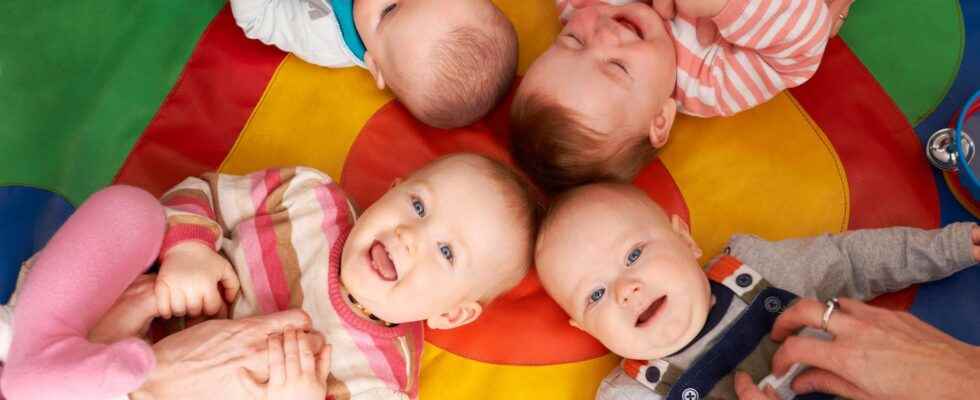Do you think you’re funny? But since when exactly? Scientists at the University of Bristol have studied the evolution of humor in babies between 0 and 4 years old. And the youngest are already sensitive to certain traits of humor.
You will also be interested
[EN VIDÉO] When a parrot makes two others laugh In New Zealand, researchers make a pair of keas (endemic parrots) hear a short cry, usually emitted during games, common in this species. Immediately, the couple flies away, twirls and the two birds themselves utter these specific calls. Conclusion of zoologists: laughter is contagious. © Raoul Schwing
To make friends, to manage stress, to learn more easily or to seduce a potential partner, humor is our best ally. But at what age are we able to understand humor and even produce it? Scientists at the University of Bristol created a study of 20 questions submitted to parents of 617 children aged 0-4.
Children’s humor changes with age
The results of this study suggest that Babies, from the age of one month, already react to humor. From 2 months, 50% of babies appreciate humor and they are 50% to produce humor at 11 months. Obviously, depending on the age, children laugh or smile with different humor lines. Children under the age of one are sensitive to visual humor like grimaces or funny postures, but also to auditory humor like changing sounds and voices. From one year onwards, children react more to funny situations that involve another human being, such as showing parts of their body that are usually hidden, or making imitations. At two years old, children begin to understand humor based on language. The words and invented sentences are popular. They also develop a more “mean” humor while enjoying pushing other children. Finally at 3 years old, their humor integrates social rules. This is the age of swear words and the like.
” Our results highlight that humor is a complex process that develops during the first four years of life. Given its universality and importance in many aspects of the lives of children and adults, it is important that we design tools to determine how humor first develops so that we can better understand not only l ‘emergence humor itself, but also how it can help young children function cognitively, socially and in matter mental health », Explains Elena Hoicka, first author of this study published in Behavior Research Methods.
Interested in what you just read?
.
fs6
